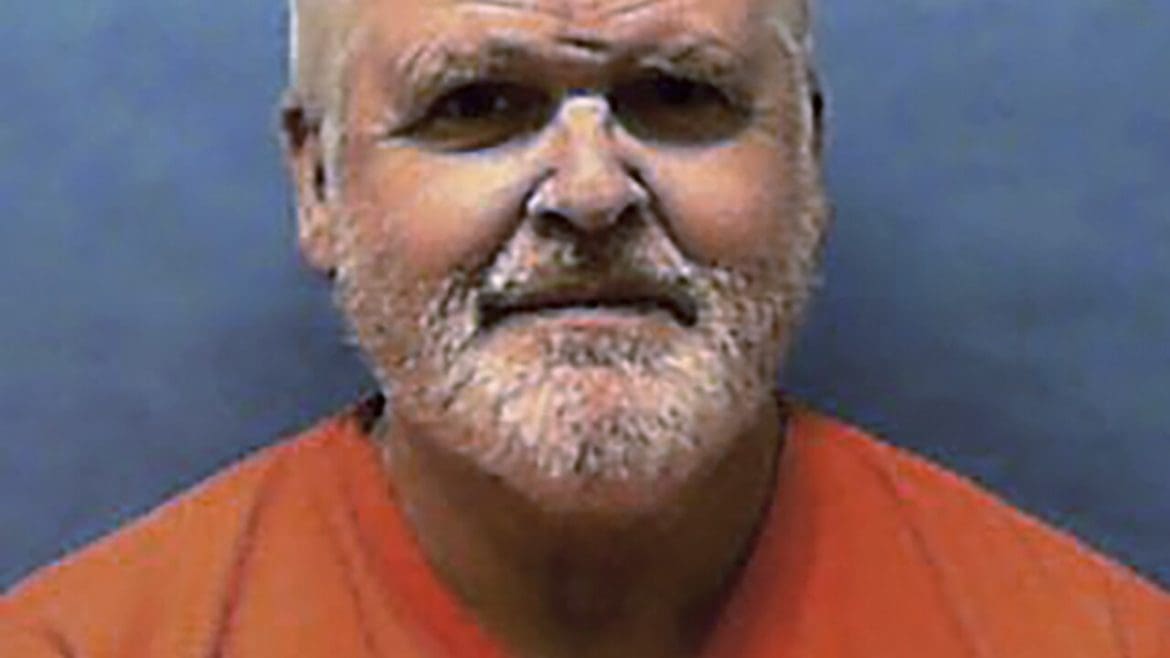STARKE, Fla. (AP) — 62-year-old Jeffrey Hutchinson, an Army combat veteran whose Gulf War experiences triggered severe mental health issues, is scheduled to be executed Thursday in Florida for the 1998 shotgun murders of his girlfriend, Renee Flaherty, and her three young children.
The execution, which is set for 6 p.m. at Florida State Prison near Starke, will be the fourth in Florida this year under death warrants signed by Governor Ron DeSantis. A fifth execution is already scheduled for May 15. If carried out, Hutchinson’s execution would mark a tragic conclusion to a case that has remained a point of contention for decades.
Hutchinson has long maintained his innocence, claiming that two unknown assailants committed the murders as part of a U.S. government conspiracy meant to silence him over his activism related to Gulf War illnesses and other issues affecting veterans. Hutchinson, who served eight years in the Army, including time as an elite Ranger, argues that the killings were part of a broader government cover-up.
However, court records reveal a different story. On the night of the murders in Crestview, Florida, Hutchinson had a heated argument with Flaherty, 32, packed his clothes and guns, and left their home. After drinking at a bar, Hutchinson abruptly departed and returned home, where he made a chilling phone call to 911, stating, “I just shot my family.” Hutchinson was later found in the garage, with gunshot residue on his hands, and the shotgun used in the killings was found on the kitchen counter.
In 2001, Hutchinson was convicted on four counts of first-degree murder—one for Flaherty and three for the children: 9-year-old Geoffrey, 7-year-old Amanda, and 4-year-old Logan. He was sentenced to life for Flaherty’s murder and three death sentences for the children.
Since then, Hutchinson has pursued numerous unsuccessful appeals, with a focus on mental health problems related to his military service. In late April, his legal team requested a delay in his execution, arguing that Hutchinson was mentally incompetent due to Gulf War Illness, post-traumatic stress disorder (PTSD), and paranoia. They claimed Hutchinson believed he was targeted by government surveillance and that his execution was part of a conspiracy to silence his efforts to expose government secrets.
However, Bradford County Circuit Judge James Colaw rejected the argument, stating, “This Court finds that Jeffrey Hutchinson does not have any current mental illness… Mr. Hutchinson does not lack the mental capacity to understand the reason for the pending execution.”
Hutchinson’s lawyers continue to argue that he suffers from a long-standing delusion, but the court remains firm in its decision. As Florida prepares for his execution, Hutchinson’s case has sparked ongoing debate over the mental competency of death row inmates and the ethics of executing individuals with severe mental health issues.
Florida’s execution protocol involves the use of a sedative, a paralytic agent, and a drug that stops the heart. As of this year, 14 people have been executed in the United States, including three in Florida, with Hutchinson set to become the fourth.
A fifth Florida execution is scheduled for May 15, for Glen Rogers, who was convicted of killing a woman in 1997. Rogers is also believed to have committed multiple murders across the country.
